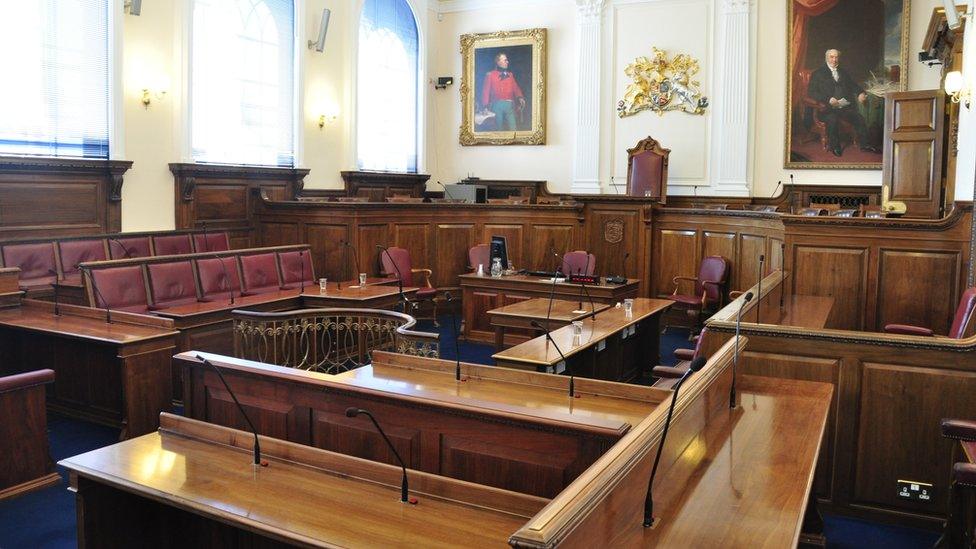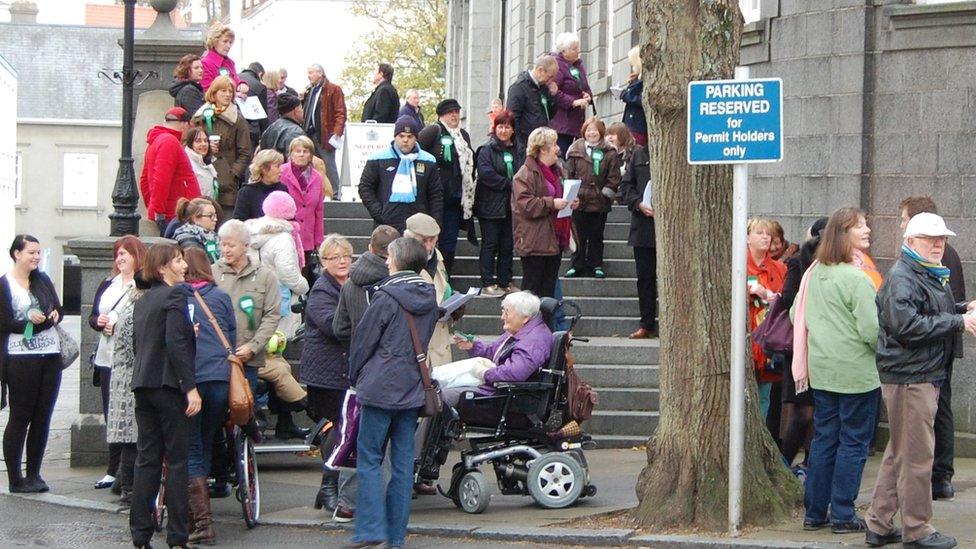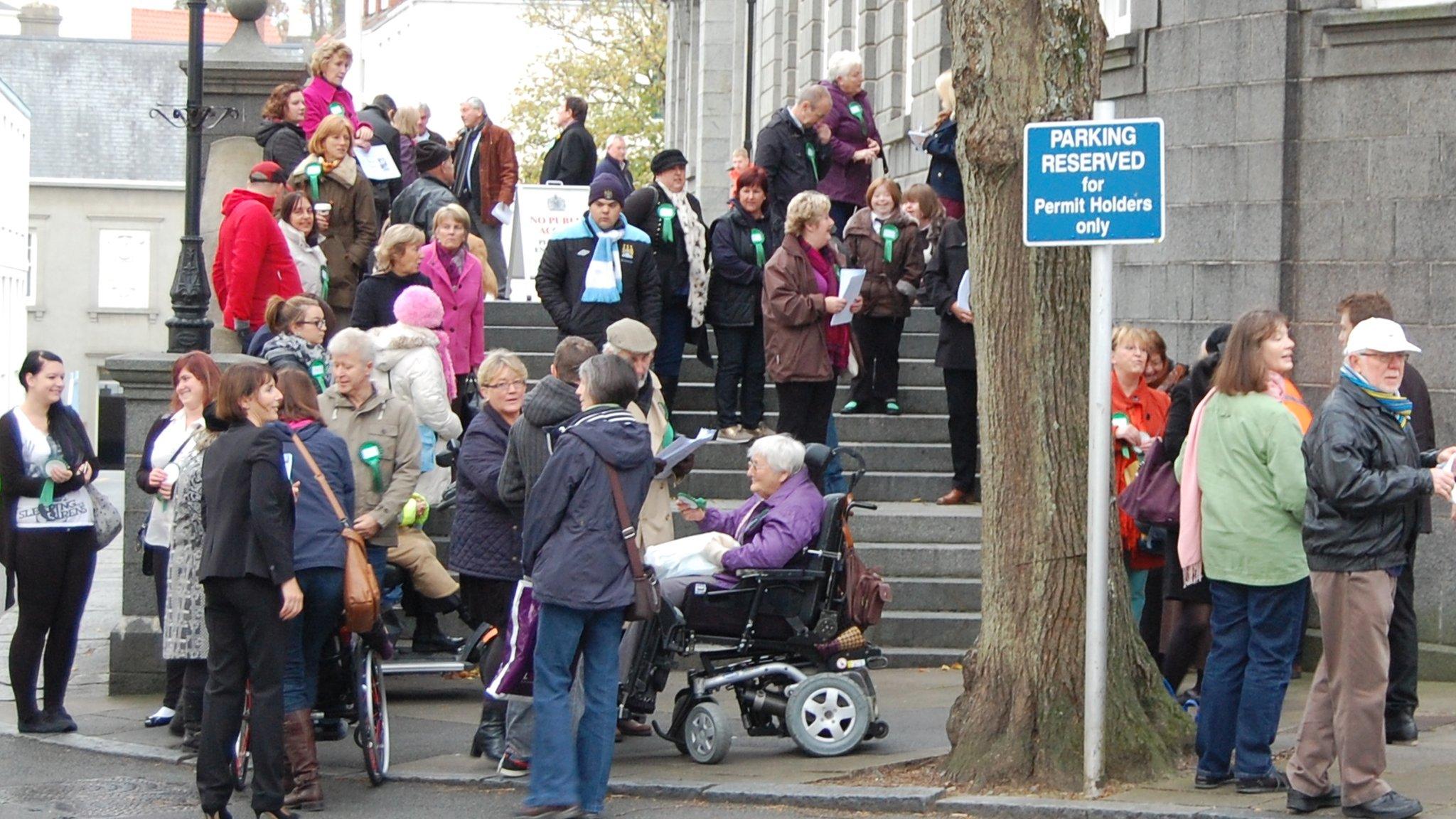Guernsey anti-discrimination legislation to go to States
- Published

Efforts to introduce anti-discrimination legislation have been ongoing since 2013
Proposals for an anti-discrimination law in Guernsey, focusing primarily on disability, have been published.
It will protect people with disabilities and their carers, and outlaw discrimination based on race, the Committee for Employment and Social Security (ESS) said.
Rules covering sexual orientation will not come in until 2026.
The legislation will enable the States Employment Relations Service (ERS) to be a mediator in complaints.
Any unresolved disputes will be referred to a dedicated anti-discrimination tribunal.

Timeline for implementation
The new regulations are expected to come into force in 2022, if they are approved by the States in April.
However, protections based on religion or age have been delayed to 2024 as part of a "phased approach".
Protections on the basis of their sexual orientation and the expansion of existing sex discrimination law have been pushed back to 2026.
Attempts to introduce legislation have been ongoing since 2013, but hit a setback two years later.

The chief executive of Disability Guernsey, Rob Platts, said he was glad to see the legislation brought forward, but expressed reservations about aspects of the proposals.
Mr Platts said he was concerned with a lack of independent mediator, given the States are "one of the largest employers and service providers" in Guernsey.
"Employers, service providers, everyone, would like an independent body they can take questions to and seek advice from."
'Compromise solution'
Ellie Jones, vice chair of LGBT charity Liberate, welcomed the legislation and recognised a phased approach was necessary, but was "disappointed" with the delay to sexuality protection.
"We don't really understand why it can't be introduced at the same time as age and religious discrimination," she said.
President of ESS Michelle Le Clerc said the committee had worked to create a "compromise solution".
"We know that there will still be disagreement over the details of this legislation, but it is essential that we protect people's fundamental rights as soon as possible," Deputy Le Clerc said.
Business leaders in Guernsey said they supported anti-discrimination legislation, but said they the proposed timeline for considering the proposal in April was too soon.
A spokeswoman for business interests in Guernsey said was crucial that [businesses] have "sufficient time to understand the implications of the complex proposals fully".
- Published17 October 2015

- Published27 November 2013
